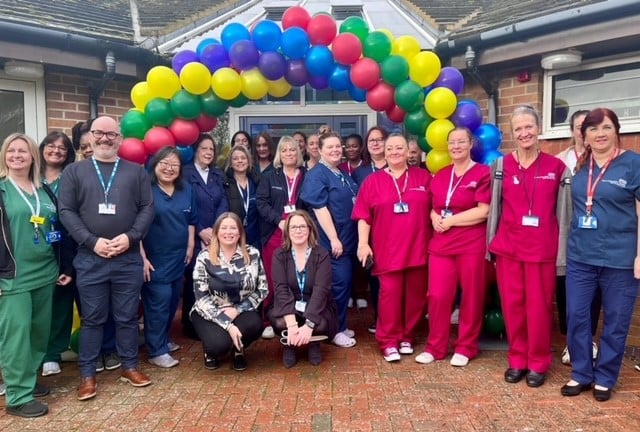Rhineland-Palatina to offer PHR to newborns
- 3 August 2007
The German federal state of Rhineland-Palatina is to offer all its newborn infants a smartcard-based personal health record (PHR) on the internet, in a project beginning 2008.
The project is believed to be the first time that a web-based personal health record will be offered across an entire German region. Rhineland-Palatina is a mid-size federal state with a population of 4m and a birth rate of around 32000 children per year.
The project is “E-PA Junior”. “E-PA” is the short form for “elektronische Patientenakte”, the German word for “electronic patient record”.
“This is the first time that a personal health record solution will be offered to citizens all over the country in one of the German federal states”, says head of CompuGroup Frank Gotthardt when talking to ehealtheurope about the project.
CompuGroup is the industrial partner of the “E-PA Junior” project. The company will supply the PHR and the necessary smartcard to the children for free until they become six of years of age. Afterwards, the PHR continues to be free for another ten years, provided that at least one of the parents uses and pays for a CompuGroup PHR, which currently costs five Euros a month.
“E-PA Junior” will be delivered in partnership with several regional medical and midwifery associations. By using a card reader and the child’s smartcard, doctors will be able to store personal medical data online, including reports on nine preventive health check ups which each child goes through in its first years in Germany.
Hospitals will also be able to upload relevant data to the PHR like X-rays or discharge letters. “The overall goal is to give the kids the possibility for a good start in life, from a medical perspective”, said Malu Dreyer, Rhineland-Palatina’s ministry of health.
To date, web-based personalized health records have been a niche product in Germany. Apart from CompuGroup, three more companies are engaged in this field, but the overall number of users is low.
Tuebingen-based Careon cooperates with health insurance companies to get its product “Careon.de” into the market. Walldorf-based ICW is engaged in regional networking projects in Baden-Wuerttemberg to popularize its PHR-solution “LifeSensor”. And IBM is cooperating with the Hamburg-based health insurance company DAK on another PHR-project which is still in the development phase.
CompuGroup justifies its investment in Rhineland-Palatina saying that citizens need to become aware of the existence of web-based personal health records: “We expect this step to bring us closer to a broad acceptance of web-based personal health records. It is not a mass market so far, but it can become one in the near future.”
The real test will be how many families will actually go for a PHR for their offspring, since taking part in the project is voluntary. There are two question marks. One is data security concerns, since “E-PA Junior” uses central data storage on regional servers, which is seen by some as a privacy risk.
Gotthardt said: “We store the medical data on servers, but absolutely anonymous, without any possibility to identify the children. Only with the help of the child’s smartcard is it possible to bring together the name and the medical data.”
The other question mark is the enthusiasm of the doctors. “They still take a critical stance towards the project”, a spokeswoman of Rhineland-Palatina’s paediatricians admitted.
Doctors will get the smartcard readers for free from CompuGroup, but they will have to pay for the internet access, which is still not standard in private practices in Germany. Much is likely to depend on how successful CompuGroup is in integrating the access to “E-PA Junior” into the existing health-IT-solutions of the doctors.
Apart from being the first state-wide PHR-project, “E-PA Junior” is significant as an early test of key aspects of Germany’s national health-IT-project. “E-PA Junior” is based on CompuGroup’s PHR-solution “vita-X”, which is used in one out of seven official test-regions of the national project. Both “vita-X” and “E-PA Junior” use the kind of smartcard-identification that will probably be part of the future national infrastructure.
Two components of the planned German national infrastructure are though missing in the “E-PA Junior”-project. Doctors will not have to use smartcards for accessing data in the beginning. And patients will not be able to access their own data easily themselves.
Gotthardt, however, says this may change in the future: “So far, vita-x is primarily a physician-driven electronic health record. But it is conceivable that we will give patients the possibility to access data from at home some time in the future, provided that data security is guaranteed.”




